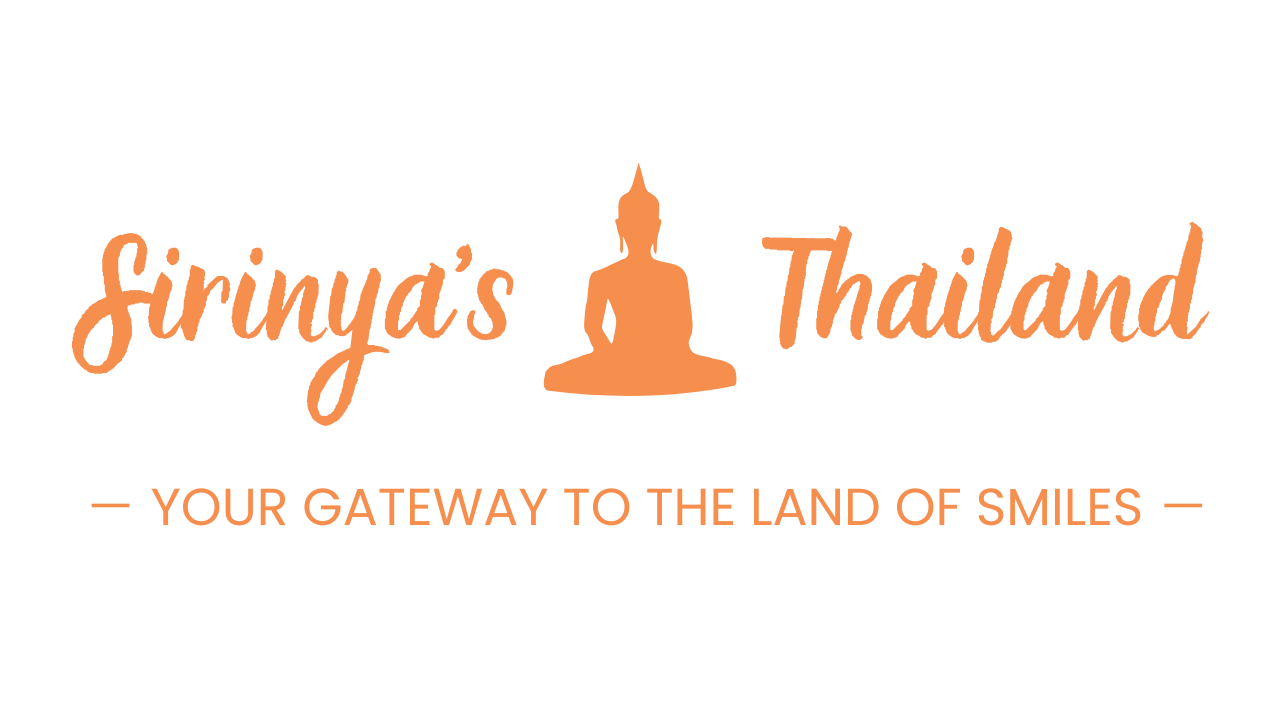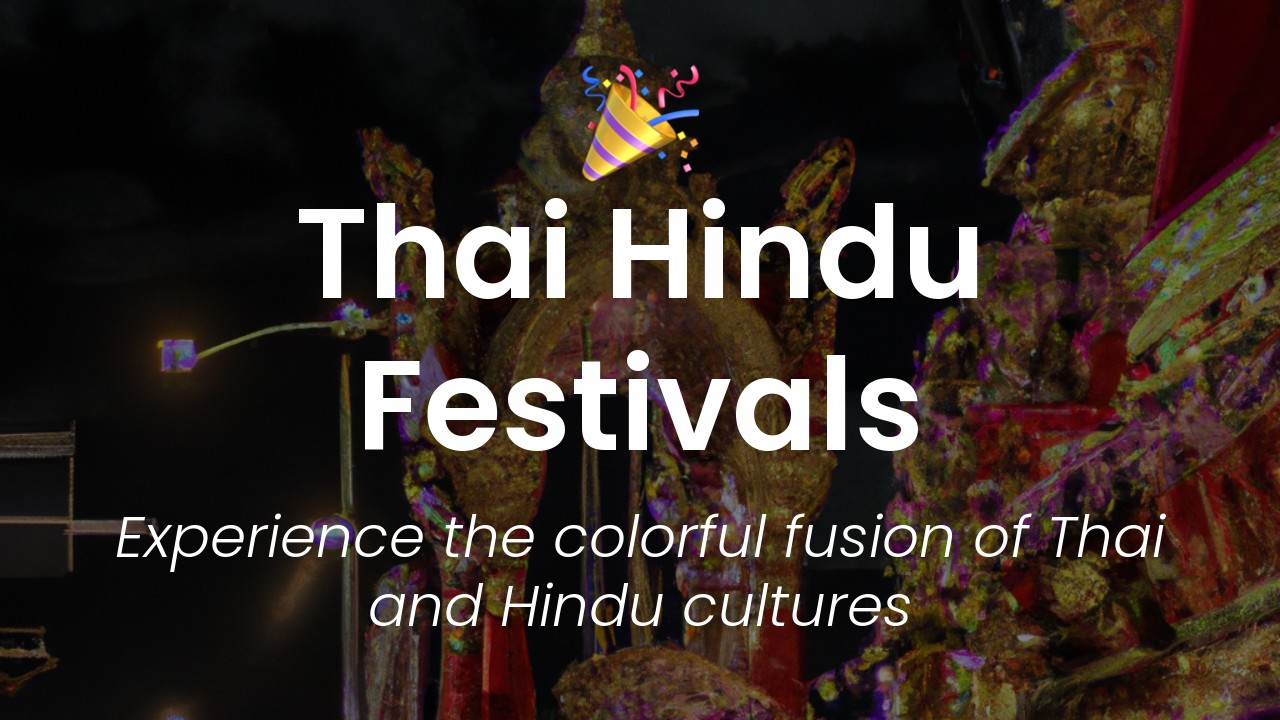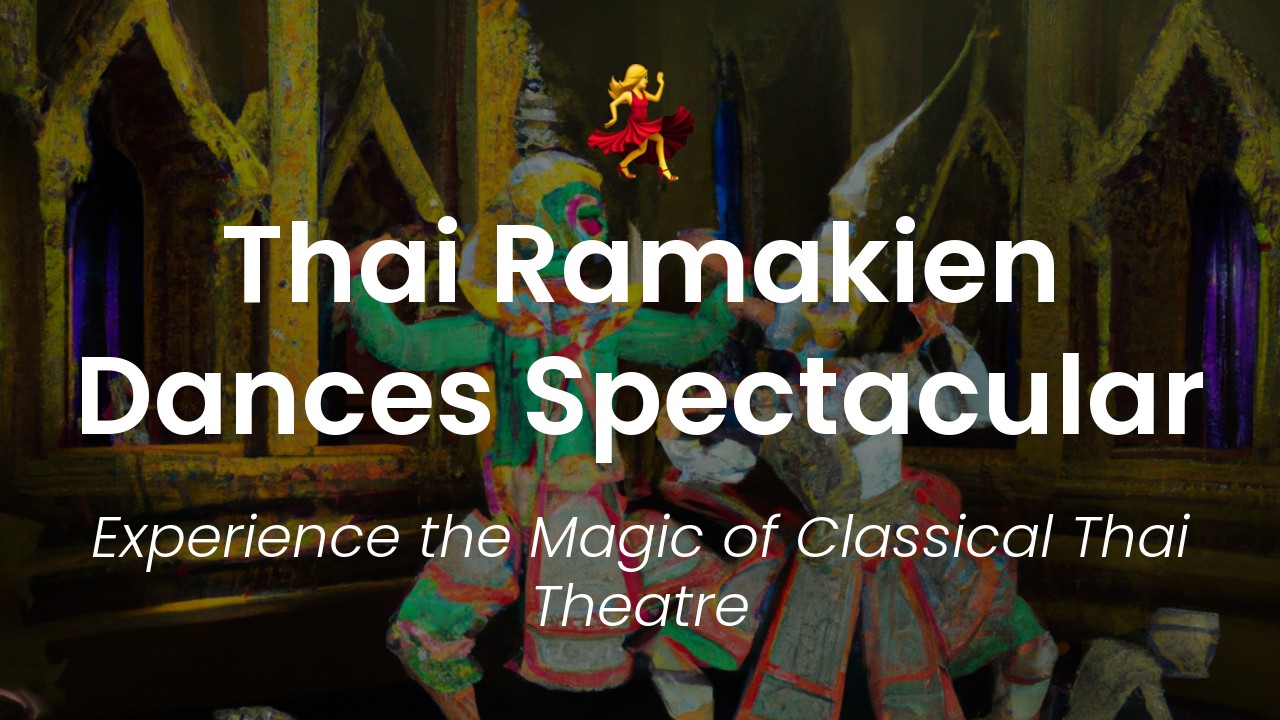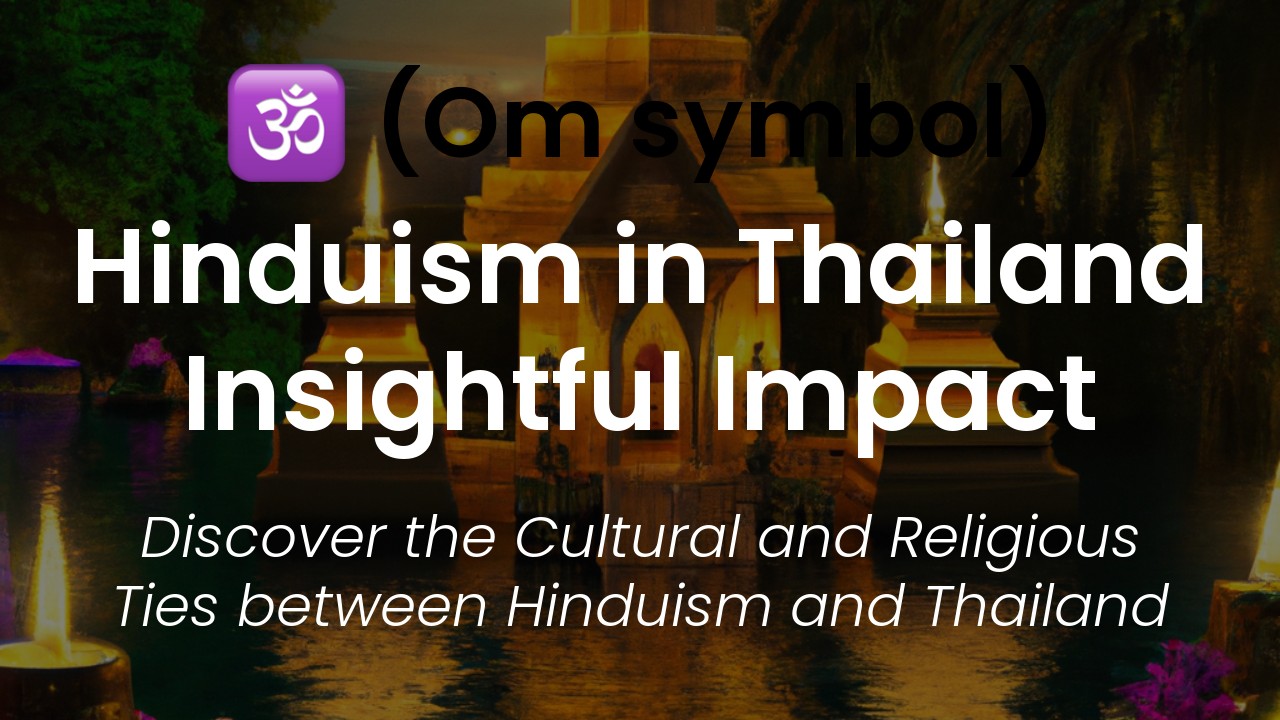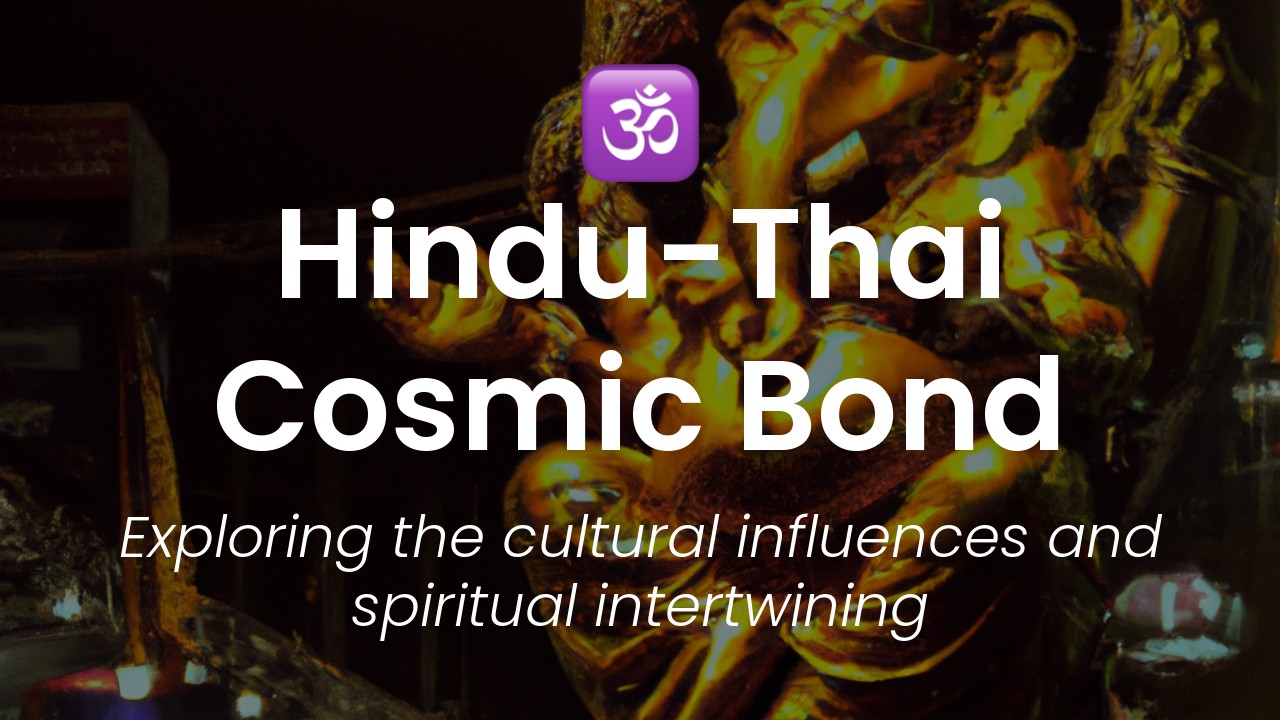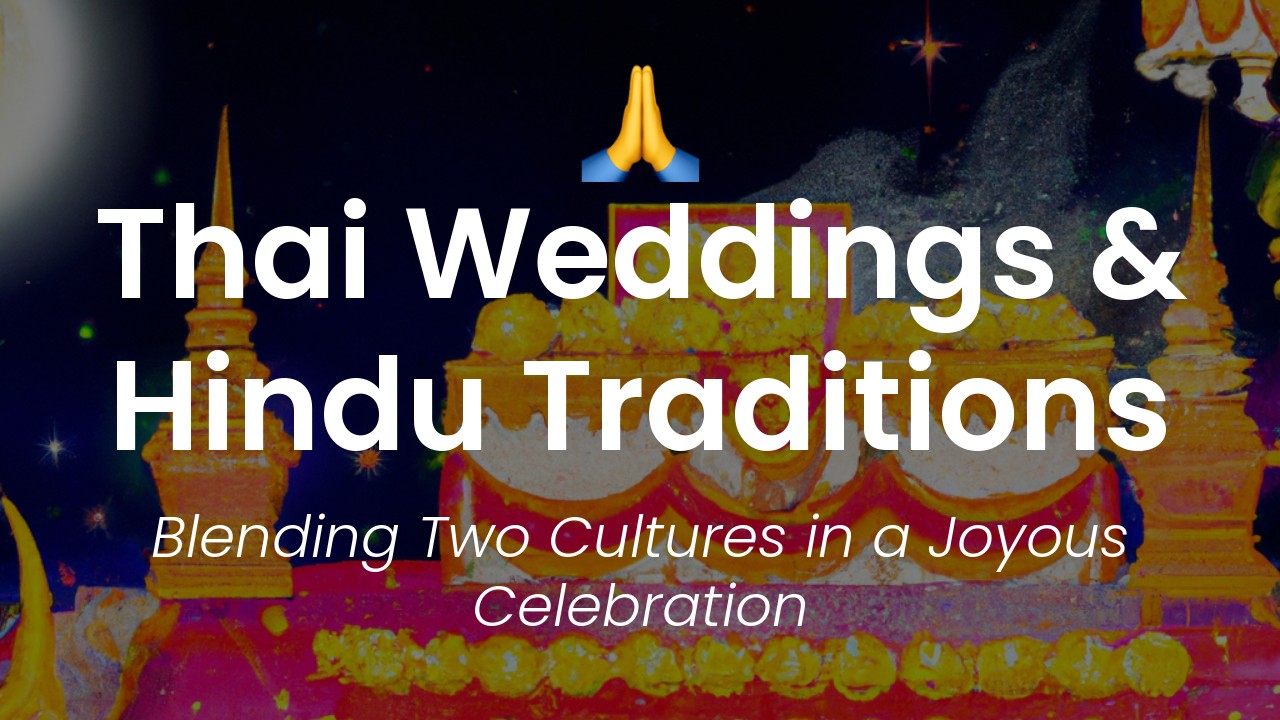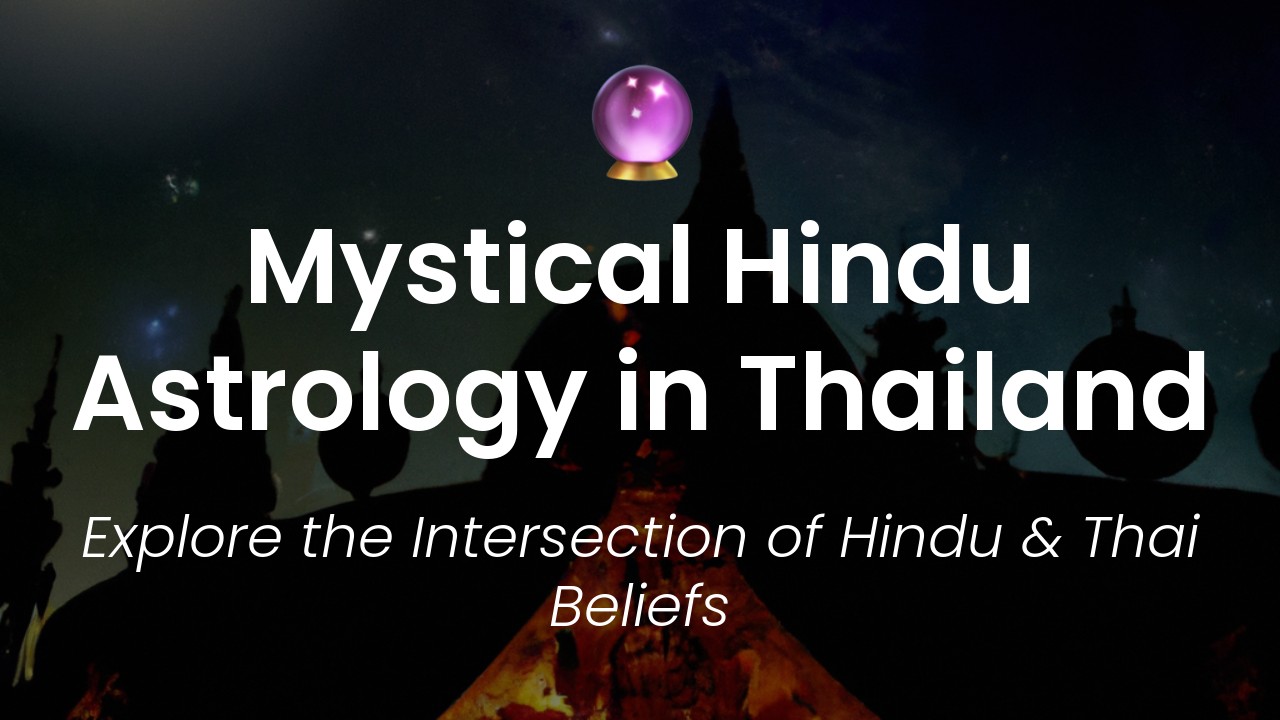Hello everyone, it's Sirinya, and welcome back to my blog about Thai culture and tourism! Today, I want to talk about some of Thailand's most fascinating cultural festivals – those influenced by Hindu traditions. Thailand has a rich history of cultural exchange with the neighboring countries, and Hinduism has played a significant role in shaping the Thai culture.
Thailand is predominantly a Buddhist country, but Hinduism has been an important influence in Thai society for centuries. Many of the country's royal traditions, beliefs, and customs have been derived from Hinduism. Hinduism is the third most practiced religion in Thailand, and the Hindu festivals are celebrated with great enthusiasm across the country. They are fascinating to watch; colorful, vibrant, and full of life! You will fall in love with these festivals if you ever have the chance to witness them.
Hinduism has had a profound impact on the culture and the way of life of the Thai people. It has introduced various art forms, such as dance, music, and sculpture. The influence of Hinduism on Thai culture is particularly prominent during the many festivals celebrated in the country. For instance, the nationwide festival of Songkran (Thai New Year), which celebrates the arrival of spring, shares some similarities with the Hindu festival of Holi. In this article, I will delve into some of Thailand's most incredible Hindu-influenced festivals, including their significance, and what to expect when you visit them.
Songkran
Songkran is Thailand's most famous festival and is celebrated annually from April 13 to April 15. It is also known as the Thai New Year and is celebrated with joy and enthusiasm in every corner of Thailand. The festival signifies the beginning of the traditional Thai New Year and is celebrated with lots of water. Everyone indulges in water fights on the streets and the locals take to the streets to splash water on each other. The festival is a symbol of purification and the dousing of water is a representation of washing away the old year’s sins.
The origins of Songkran can be traced back to ancient Buddhist and Hindu celebrations. The festival marks the coming of spring, with the hot season ending and the rainy season starting. As the hot season begins, people use water to cool down, which led to water being associated with the festival.
Loy Krathong
Loy Krathong, also known as the festival of lights, is one of the most picturesque and enchanting festivals in Thailand. The festival is celebrated annually on the full moon of the 12th month on the Thai lunar calendar, which normally falls in November. Loy Krathong is celebrated throughout Thailand, but it is most popular in the northern region, especially in Chiang Mai where it’s celebrated for three days.
The highlight of the festival is the release of krathongs – small, handmade vessels made from banana leaves decorated with flowers, candles, and incense. The krathongs are set adrift on the rivers, canals, and other water bodies as a thanksgiving to the goddess of the water and to apologize for any misdeeds done during the year.
Vegetarian Festival
The Vegetarian Festival is an integral part of traditional Chinese beliefs and is uniquely celebrated in Phuket, Thailand. The festival is celebrated in the ninth lunar month of the Chinese calendar, which falls in September or October. During the 10-day festival, the people of Phuket observe a strict vegetarian diet out of respect for their belief that such a diet purifies the body and soul.
The highlight of the festival is the procession that is organized by various Chinese temples. The procession features participants dressed in white and carrying banners and flags. The participants also perform acts of self-mutilation, including piercing, skewering, and slashing their bodies with swords and sharp objects. It is believed that the acts purify themselves of sin and bring good luck and prosperity in the coming year.
Phi Ta Khon
Phi Ta Khon is a unique festival celebrated annually in the Dan Sai district of Loei Province, northeastern Thailand. The festival is celebrated in the fifth or sixth Thai lunar month, which normally falls in June or July. The festival is believed to have originated from Buddhist and Hindu traditions and is a symbol of the locals’ agricultural lifestyle.
The festival features people dressed in colorful masks, costumes, and ghost-like makeup marching through the streets while dancing and playing traditional music. The festival is also known as the ghost festival because the participants are believed to be the ghosts of long-deceased ancestors. The festival is a fun-filled celebration of life, music, and the local culture.
Elephant Festival
The Elephant Festival is an annual festival held in the Surin Province of Thailand. The festival takes place during the third weekend of November each year and celebrates the significance of elephants in Thai culture. The festival includes a procession of decorated elephants, a talent contest for elephants, and shows featuring traditional Thai culture.
A highlight of the festival is the elephant parade, which features dozens of elephants walking through the city center. The elephants are adorned with vibrant colors, decorated with flowers and beads, and showcase the unique skills and intelligence of these majestic creatures.
Ganesh Chaturthi
Ganesh Chaturthi is a Hindu festival that is celebrated by the Indian and Thai Hindu populations living in Thailand. The festival marks the birthday of Lord Ganesha, the elephant-headed god. The festival is celebrated during the Hindu month of Bhadrapada, which falls in August or September.
The festival is celebrated with great enthusiasm and devotion, with people preparing traditional sweets and delicacies for the deity. The highlight of the festival is the installation of idols of Lord Ganesha in homes, temples, and public puja pandals, where devotees offer their prayers and seek blessings from the deity.
Diwali
Diwali, also known as the Festival of Lights, is one of the most important festivals celebrated by Hindus, Jains, and Sikhs around the world, including Thailand. The festival signifies the victory of good over evil and light over darkness. The festival is celebrated on the 15th day of the Hindu month of Kartik, which falls in October or November.
The festival is celebrated by lighting lamps and decorating homes with lights and lanterns. The highlight of the festival is the fireworks display, which fills the sky with beautiful colors and patterns. During Diwali, people also exchange gifts and sweets, and families come together to celebrate the festival.
In conclusion, Thailand is a country with a rich cultural heritage that has been influenced by Hindu and Buddhist traditions. Thailand's Hindu-influenced festivals offer visitors a unique opportunity to experience the vibrant culture and traditions of the country. So, plan your next trip to Thailand during one of these festivals and immerse yourself in the local culture and the country's rich history.
